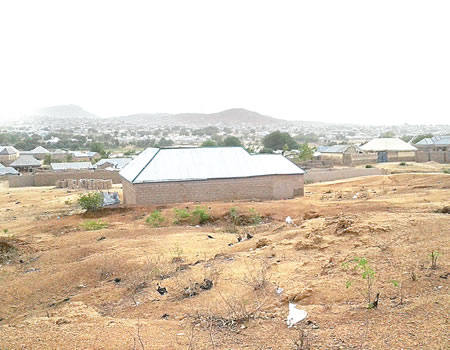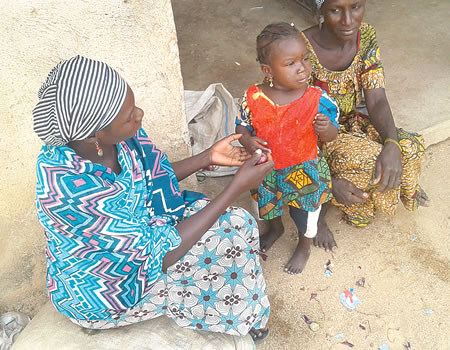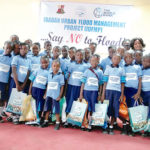
Armed Conflict between Boko Haram and the Nigerian State in the North-East of Nigeria has resulted in significant displacement with a total of about 1.77 million as at last year. This figure, which is attributed to the Internal Displacement Monitoring Centre (IDMC) accounts for the presence of NGOs in North Eastern Nigeria.
The aftermath of the attacks on some of the communities in Borno, Yobe and Adamawa States have left many IDPs homeless and penniless. Religious identity has been at the centre of conflict in Nigeria typically leading to violence, particularly in regions that are high mixed thereby reiterating the thoughts of J.S. Furnivall that “People mix but do not combine”
Starting as a revivalist Islamic group, Boko Haram began engaging in violence in 2009 in response to investigations and arrests by the authorities which ultimately led to hundreds of deaths in clashes between fighters and security forces. Since then, the armed conflict has seen significant displacement in the states of the North-East, suicide bombings in Abuja as well as attacks on churches and massacres in communities.
The Borno State Government have been encouraging the many displaced from conflict-affected districts to return to their homes. Officials from the state government stated that in April 2017 about 310,000 IDPs had returned to Borno with 100,000 remaining in Maiduguri. However, a one-on-one discussion with many of these IDPs reveal that they are unsure of the security situation in their home districts, followed by concerns about the state of their home and access to humanitarian assistance, livelihood and basic services. Presently, some Local Government Areas can only be

accessed by helicopter and with military escorts. Furthermore, disputes between IDPs and their host communities concerning housing, land and property is on the increase with particular impact on widows and women in general. Many of them survive through menial jobs and the humanitarian assistance from NGOs like the Norwegian Refugee Council, the Danish Refugee Council and a host of other NGOs that are domiciled in the North-East.
The hot and dusty atmosphere of Modu-Solamari community in Maiduguri hits one on the face like the blast from a furnace. The houses are make-shift tents made of old sacks and rusted zincs, while some others are resident in uncompleted buildings with or without roofs depending on the financial capacity of the occupant. In this camp resides Hamsatu Mustapha, a widow and mother of six whose husband died after sustaining severe injuries from Boko Haram in 2014. Since her displacement, she had been living from hand to mouth until she encountered officials of the Norwegian Refugee Council who assisted her with housing and a start-up sum of N43,500 to start a business. In a chat, she narrated that the money was given to her and other women during the Ramadan season, and that from that time until now, she had expanded her business which has enabled her to feed her six children. She went on to explain that she had been able to pay her children’s fees at school as well as supporting other children in the community.
Nit all the IDPs are like Hamsatu as most of them still deal with conflicts from the use of land belonging to their host communities. These communities are headed by village wards and community leaders known as Bulama or Mai Anguwa. One of the community leaders, Alhaji Bulama Kolo threw more light on some of the challenges he faced after his home community was attacked, starting with the burning of his house, farm and cattle. “ I am 52 years old from Bulabarin, Dambuwa road”, he says. “We came here four years ago. We will like to go back to our village, that is the best, but this is our home for now. Look at it, it is a thatched house. When the rain comes, we cover the roof with leather and sleep like that. We are a family of seven, my wife and I and five children. We once had cattles to help us farm. We had farm produce like beans and millet. We had all these things but we left everything and ran away and it all got burnt. We came out only with our clothes, not even with our shoes”.

IDPs in Wuro-Patuji and Chandal community in Mubi, Adamawa State are faced with the challenge of accessing potable water and illegal land acquisition on the part of some residents of the host communities. One of the residents of Wuro-Patuji, Moses Marcel, narrates how someone related to the Emir of Mubi, forcefully took a land that was purchased by his mother. He went further to explain that he had a document stating his mother as the owner. In the document he claimed, are witnesses to the purchase of the land who are afraid to affirm that his mother is the owner. Moving on to Chandal community, the topography is such that makes access to water a challenge as the water aquifer is too deep. This lack of water leads to lots of health challenges, especially for women and children.
A critical assessment of the situation in these three north-eastern states reveals the need for urgent attention to be given to these IDPs, particular the widows, women and children among them. This should be the focus of the state governments rather than making arrangement for a premature return to their former communities that still bears harrowing memories for them.
Nwabuokei is a journalist and writes via judenwabuokei@yahoo.com




